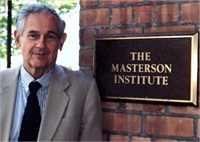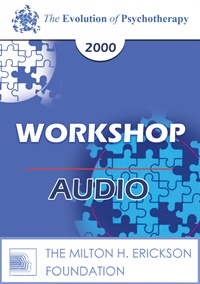EP00 Workshop 09 - Narcissistic Personality Disorder (Closet): A Developmental Self and Object Relations Approach - James Masterson, MD
- Average Rating:
- Not yet rated
- Topic Areas:
- Workshops | Narcissism | Personality Disorders | Psychoanalysis | Object Relations Theory | Psychotherapy | Supervision
- Categories:
- Evolution of Psychotherapy | Evolution of Psychotherapy 2000
- Faculty:
- James F. Masterson, MD
- Duration:
- 1 Hour 10 Minutes
- Format:
- Audio Only
- Original Program Date:
- May 25, 2000
- License:
- Never Expires.
Description
Description:
This workshop comprises three elements:
- A one-hour videotape demonstrating the use of mirroring interpretation of narcissistic vulnerability to establish a therapeutic alliance.
- Discussion of the tape, and
- Supervision of cases presented by the audience.
Educational Objectives:
- To describe mirroring interpretation of narcissistic vulnerability to establish a therapeutic alliance.
- To describe the vicissitudes of the disorders of the self triad.
*Sessions may be edited for content and to preserve confidentiality*
Credits
Faculty

James F. Masterson, MD Related Seminars and Products
James F. Masterson (M.D., Jefferson Medical School, 1951) was Director of the Masterson Group, P.C., which specializes in the treatment of adolescent and adult character disorders. Additionally, he was Director of the Masterson Institute (formerly Character Disorder Foundation); attending psychiatrist at New York Hospital, Payne Whitney Clinic; and Adjunct Clinical Professor of Psychiatry at Cornell University Medical College. Masterson has authored seven books and edited two volumes, mostly on the topic of psychoanalytic approaches to character disoreders and adolescents. His seminal work on the borderline personality has made him one of the most influential and studied practitioners of modern psychoanalytic methods.


